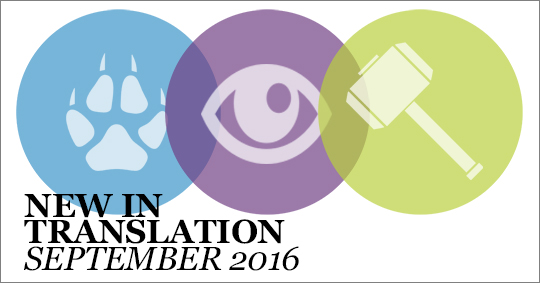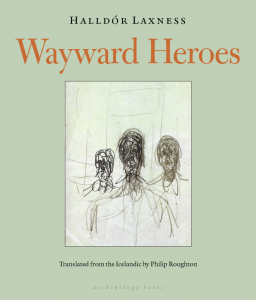New week, new happenings in the world of literature. President Trump continues to make headlines (read our Spring Issue for an exploration of literature in the Trump era). Madeline Jone, Editor-at-Large for USA reports how it has affected the publishing industry. Across the Atlantic, Cassie Lawrence, Executive Assistant at Asymptote, relays heartening news about women in publishing and the buzz of literary festivals in London this weekend. Chief Executive Assistant Theophilus Kwek reports how Singapore’s novelists are fighting back, and more.
Editor-at-Large Madeline Jones gives us the round-up from USA:
US media narratives have been deluged with news of presidential catastrophes. No surprise, then, that this is reflecting in the publishing world, from book publishers struggling to understand how to talk about Trump to children, to books about the electoral process. With timing that seems ominous, in the light of the very popular TV adaptation of Margaret Atwood’s 1985 novel The Handmaid’s Tale, the book has edged its way between a Danielle Steel and a James Patterson on the New York Times Best Sellers list. Another notable that has been on the list is Shattered: Inside Hillary Clinton’s Doomed Campaign.
Speaking of which, the annual Book Expo America, popularly known as the BEA, is scheduled from May 31 to June 2, and Hillary Clinton is one of its top draws this year. A gathering of publishers, booksellers, agents, librarians, and authors in New York City, the Book Expo is the biggest event of its kind in North America.





